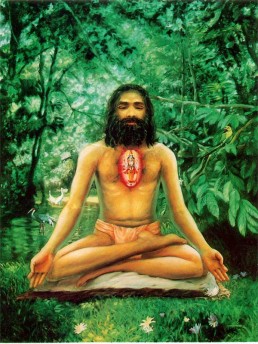Commentary
This verse relates to a seeker who has faith in the efficacy of Yoga but who is unable to control the senses and the mind. Arjuna asks what happens to such a person for he may lose both the joys of the sense objects and the Absolute Bliss hereafter. The word Sraddha does not mean blind faith but an intellectual understanding of the deeper significance of what the teachers teach and scriptures declare.
Swami Chinmayananda Commentary
The commentary on this verse and the rest, is avaialble for free as:
Kindle eBook
Google Play Book
Apple Books
Adi Sankara Commentary
O Krishna, aprapya, failing to achieve; yoga-sam-siddhim, perfection in Yoga, the result of Yoga, i. e. full Illumination; kam gatim, what goal; gacchati, does one attain; who, though upetah sraddhaya, possessed of faith, belief in God and in the other world; is ayatih, not diligent, devoid of effort on the path of Yoga; and, at the time of death, too, calita-manasah, whose mind becomes deflected; yogat, from Yoga, (i. e.) whose memory has been lost?
The Bhagavad Gita with the commentary of Sri Sankaracharya – Translated by Alladi Mahadeva Sastry
Holy Geeta – Commentary by Swami Chinmayananda
The Bhagavad Gita by Eknath Easwaran – Best selling translation of the Bhagavad Gita
The Bhagavad Gita – Translation and Commentary by Swami Sivananda
Bhagavad Gita – Translation and Commentary by Bhaktivedanta Swami Prabupadha
Srimad Bhagavad Gita Chapter 6 – Verse 37 – 6.37 ayatih sraddhayopeto – All Bhagavad Gita (Geeta) Verses in Sanskrit, English, Transliteration, Word Meaning, Translation, Audio, Shankara Bhashya, Adi Sankaracharya Commentary and Links to Videos by Swami Chinmayananda and others – 6-37

